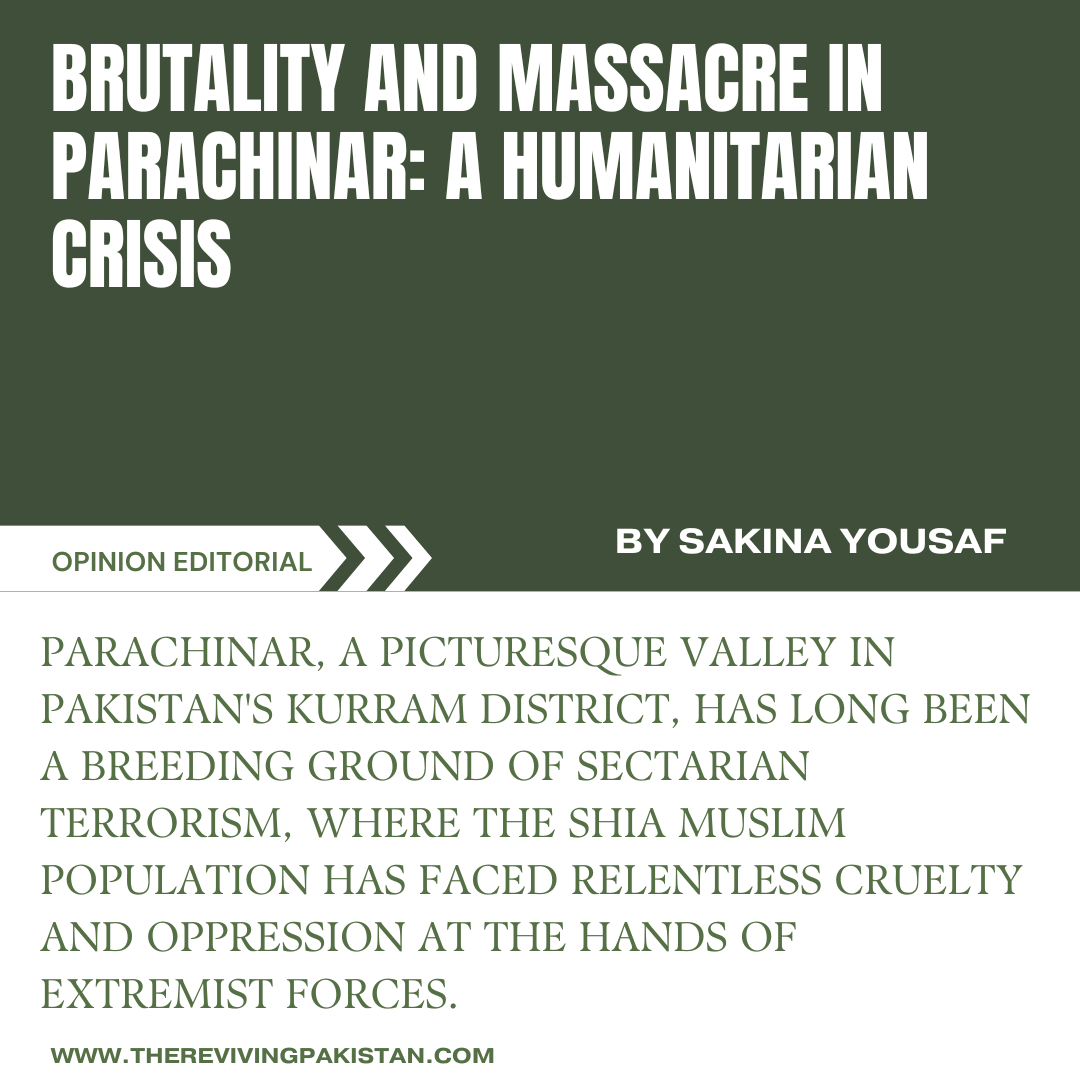About the Author(s)
The author is a high school student with a passion for writing. She finds joy in expressing herself through words. Writing helps her process her thoughts and ideas, and she enjoys sharing her perspectives with others.
Parachinar, a picturesque valley in Pakistan’s Kurram district, has long been a breeding ground of sectarian terrorism, where the Shia Muslim population has faced relentless cruelty and oppression at the hands of extremist forces. Decades have passed since the residents of Parachinar have withstood a reign of trepidation, marked by persistent onslaughts, sieges, and blockades. Hence, leaving them politically disenfranchised, economically strangulated and socially isolated.
The origin of this conflict dates back to the early 1980s, when General Zia-ul-Haq, Pakistan’s then-dictator, began to sow the seeds of sectarianism in the region. His policies of Islamization and unwavering support for Sunni extremist groups created an environment of hostility and intolerance, which eventually led to the marginalization and victimization of the Shia community in Parachinar.
Since the siege of Parachinar in 2017, the valley has been shackled in the chains of violence including bombings, massacre, and targeted killings. The extremist groups have frequently raided and plundered Shia mosques, homes, and businesses, leaving gazillions of innocent inhabitants dead or injured. The civilians have been forced to live in a state of constant terror with diminishing access to basic necessities of life like food, clothing, education and medicine.
The Pakistani government’s inadequate response and failure to safeguard the Shia population has only emboldened these extremist groups, enabling them to operate with indemnity. The international community, too, has largely ignored the elephant in the room despite the severity of the situation.
To address this crisis, it is absolutely necessary that Pakistani government, hand in hand with the international community, takes concrete steps to protect Shia community in Parachinar as well as provide humanitarian aid to its residents. Initiatives must also be taken to promote interfaith dialogue and reunion in the region.
In conclusion, the bloodshed in Parachinar is a stain on humanity’s conscience. It is our collective duty to raise our voices against the tyranny, ensure that the residents of Parachinar can live without fear of persecution, and that their uncontrolled cries are heard. We must not remain still as the grave in the face of such discrimination and injustice.

